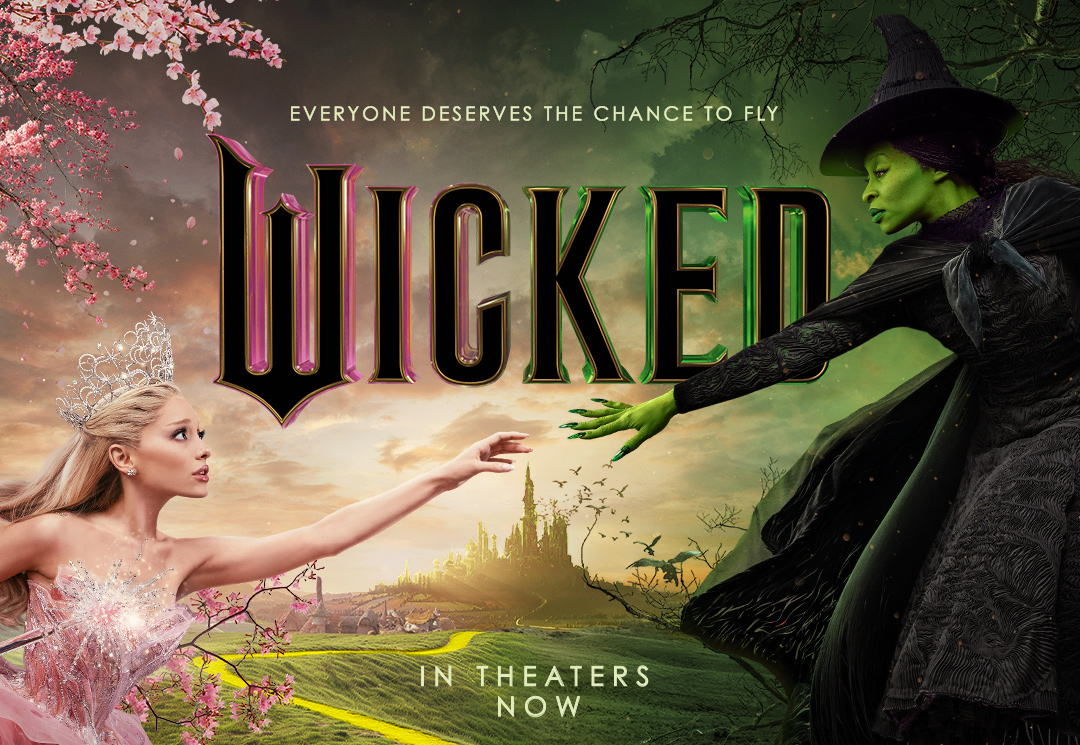
The success of Wicked, Part 1, has been chalked up, in part, to the fact that the film is staunchly faithful to the broadway production on which it is based. The movie nails the tone, the characters, and the early-2000s liberalism of the show.
Wicked is a re-telling of The Wizard of Oz from the Wicked Witch’s point of view. Instead of being about a group of misfit friends helping a lovably incompetent wizard defeat a wicked witch, it follows said wicked witch (Elphaba) as she struggles with a society rife with inequality and injustice.
The heart of Wicked is the relationship between Elphaba and future Good Witch Glinda (perfectly captured by Cynthia Erivo and Ariana Grande), college roommates who overcome prejudice to become best friends. Their friendship is tested when they travel to the Emerald City to meet the Wizard, to ask him to stand up for the talking animals who have been facing brutal discrimination. Instead of the benevolent miracle-worker they were expecting, they find out that the Wizard is a mediocre charlatan, held aloft by a cult of personality and racist (or rather, speciesist) propaganda.
Subsequently, Glinda abandons all principles to work within the system, while Elphaba turns to domestic terrorism—itself a telling depiction of the two sides of liberalism, but one that will be more fully apparent in Part 2, which comes out next year.
The friends’ discovery at the end of Part 1, that politicians lie and manufacture divisions for their own purposes, is sure to resonate with movie audiences today, just as it did with theatre audiences 20 years ago. What rings less true is the absolute trust that inhabitants of the world of Oz have in their leaders and the media.
In the original stage production, the figure of the Wizard was a deliberate riff on then-U.S. president George W. Bush, with direct analogues in the show for the much-hated White House press secretaries and Fox News. While the movie has shed any out-of-date references, the plot of Wicked still revolves around the notion that the masses are easily led by the lies of politicians and the media. It assumes that, except for a few enlightened individuals, most of the population is complacent towards, or gleeful participants in, the oppression of others. This position was already wrong when the musical came out 20 years ago.
Today, however, after more than a decade of major social movements and upheavals, when trust in government and media is at an all-time low, the liberalism of Wicked is especially out-of-touch. Hearing the government denounce someone as “wicked” and dangerous to society is more likely to spark interest than the universal chorus of condemnation that the movie ends with. If you want proof, look no further than the growing popularity of communism.

